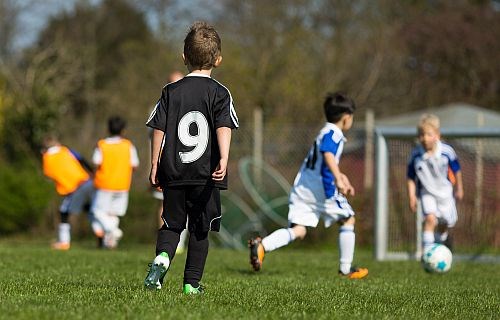The global challenge of growing sports
In sporting terms, the term grassroots is oftentimes understood by defining what it is not— specifically, performance-oriented or commercially driven varieties of sport. The grassroots is foundational, local-level, community-driven, and primarily recreational. It is arguably the only genuine social movement focused on sport.
It consists of a loose coalition of participants, officials, coaches, volunteer administrators, and parents who commit to the cause. These stakeholders not only play an important role in sustaining the grassroots sport movement, they directly influence the nature of the experience.
Increasingly, governments – at various levels – intervene in grassroots sport. For example, the national governments of numerous countries develop policies, programs and funding programs targeting grassroots sports. Local government, too, has a long history of supporting the grassroots, predominantly through the provision of various facilities as well as the provision of outreach and community sport development programs.
What’s grassroots sport all about?
For some, grassroots sport is about the development of sport: the development of players, coaches, clubs, and competitions. For others, it is about the possibility of bettering society through sport by improving physical and mental health and well-being, regenerating communities, addressing crime and anti-social behavior, enhancing education, and making a positive contribution to the economy.
However, while grassroots sport offers the potential to meet these aspirations, it is also challenged by a range of micro- and macro-level considerations. At the micro-level, challenges such as poor operational practices, unrealistic parental expectations, participant drop-out, and the pressures placed upon volunteer coaches and administrators adversely affect grassroots sport.
At the macro-level, issues such as the privatization of youth sport, the media representation of sport, the expectations associated with the impact of grassroots sport, and the politics and power across the various stakeholders involved in grassroots sport, all contribute to a challenging grassroots sport environment.
At Play the Game 2019, delegates will hear more about these challenges and the ways in which they are being addressed. Tom Farrey, the Executive Director of the Aspen Institute’s Sports and Society program, will kick things off by presenting the overarching vision and work of Project Play and their attempts to revitalize youth sport and replace the largely adult business model that dominates youth sport with a youth-centric, age-appropriate development model.
Chris Snyder from the United States Olympic and Paralympic Committee (USOPC) will build on the discussion, emphasizing the creation of the American Development Model (ADM). The ADM was created to enable the USOPC and US-based national governing bodies of sport to provide quality youth sport programming in order to slow or stop the drop-out in American sport.
Providing an international perspective, Fernando Mezzadri will examine Brazilian sports policy and the impact of this on grassroots sport following Rio 2016. Peter Donnelly will reflect on grassroots and elite sport policies in Canada. He will compare the resources given to grassroots and elite sport and argue that while fetishizing medals has not directly caused a decline in youth and grassroots sport, it has created a situation that puts democratized participation in sport in a policy void.
Taking the discussion in a different but important direction, Elizabeth Daniels will take a look at the role that the media play in promoting sport. In particular, she will discuss the ways in which the media typically cover women’s sports. Her presentation will also examine the effect that such coverage has on viewers, especially girls and women, and will consider the implications for grassroots sport along with recommendations for change.
Grassroot sport in the United States
In a parallel session, Chris Knoester will detail adults' reports of sports involvement in their own life over the past year, while growing up, and the sports involvement of their residing child. Stacy Warner will be talking about how sport can and should be managed to promote participation health, while Simon Licen will be presenting how sport management educators in the U.S. are doing when it comes to good governance. With an onset in a children’s game circling around the Harry Potter universe, Manuela Gamba will present how the game can function as a tool and means to grow together while having fun following in Harry Potter's footsteps. Thomas Aicher will be presenting data from his study on the perceived welcomeness and self-efficacy of different racial groups within the United States that adds credence to the racialization of sport.
Grassroots sport will be up one of the topics for debate at Play the Game 2019.
You can see the full programme, the list of speakers and all other information you need about the conference at the conference website.
Play the Game 2019 would not be possible without the generous support from the University of Colorado, Colorado Springs, and a great number of sponsors in Colorado Springs and Denmark. You can see the list of sponsors here.







